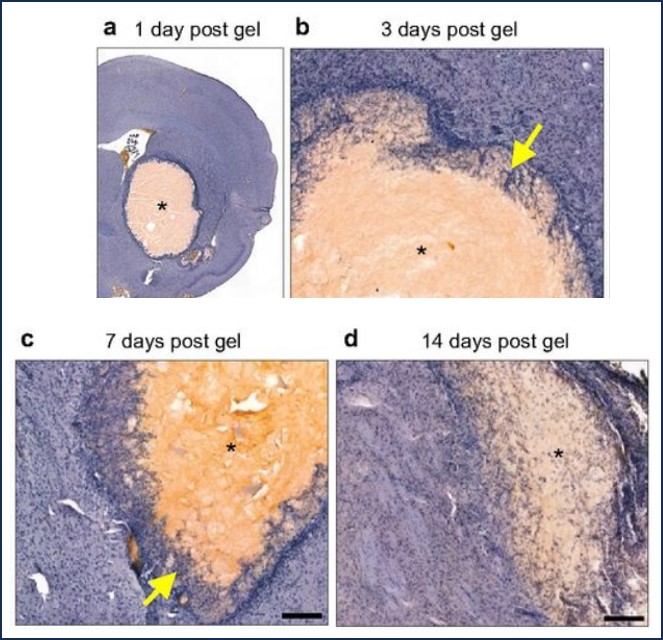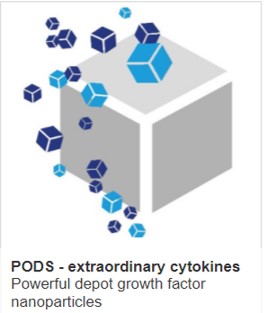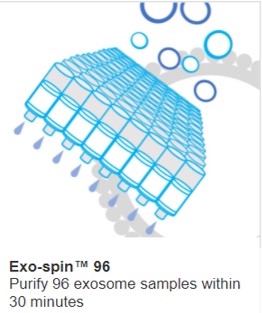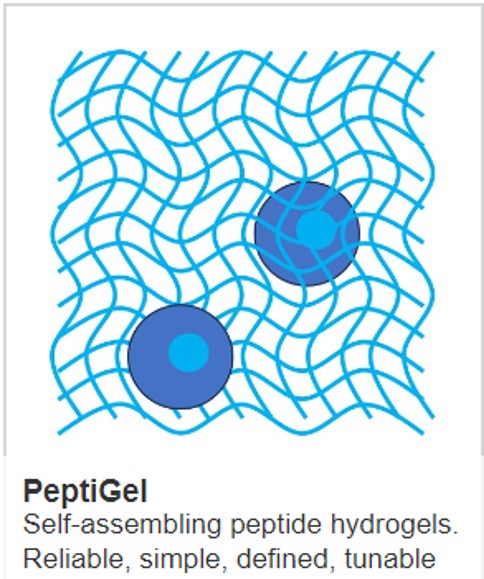PeptiGel® Alpha 2 in a model of intracerebral haemorrhage

Hydrogel matrices, either on their own or in combination with implanted cells, are capable of supporting the repair of tissue injuries. A new study from researchers at Manchester University demonstrates the safety and cell-proliferative action of PeptiGel® Alpha 2™ injected intracerebrally in a rat model of haemorrhagic stroke.
Numerous factors need to be considered when selecting a hydrogel for in-vivo studies. These include biodegradability, biocompatibility, physical tunability, and immunogenicity. Increasingly, synthetic hydrogels are being selected for such studies. In this study, the researchers examined the use of Alpha 2, from the PeptiGel® range of synthetic self-assembling peptide hydrogels.
PeptiGels are composed of short peptide sequences which self-assemble into nanofibrillar structures. These peptides can be modulated to produce the desired characteristics. They are biodegradable and non-immunogenic. Biodegradability is important, not just for the resorption into the body, but also allows matrix-metalloproteases-dependent migration of cells within the hydrogel. Another key factor is tunability. PeptiGels can provide a variety of elasticities (stiffness) as well as functional and charge characteristics.
The researchers undertaking the study induced a haemorrhage-like injury in each rat brain by injecting collagenase and subsequently administering the Alpha 2 and controls into the lesions created. The rats were observed over a period of up to 8 weeks and the injury was assessed with a wide range of behavioural, imaging and molecular tests.

Neurons migrating into hydrogel implanted into the lesion over a 14-day period. From Bolan et al
The researchers showed that the Alpha 2 hydrogel was well tolerated and safe. There were also no detrimental effects on behavioural outcomes. Alpha 2 increased over cell proliferation at the site of injury, and had a neutral effect on the expression of genes, with pro-inflammatory genes, in particular, being unaffected.
PeptiGels have several suitable properties for in-vivo use and provide an excellent choice for support matrices. In particular, the potential of Alpha 2 hydrogel to support cellular therapy was shown.
IMAGE Bigstock
Learn more about powerful technologies that are enabling research:



